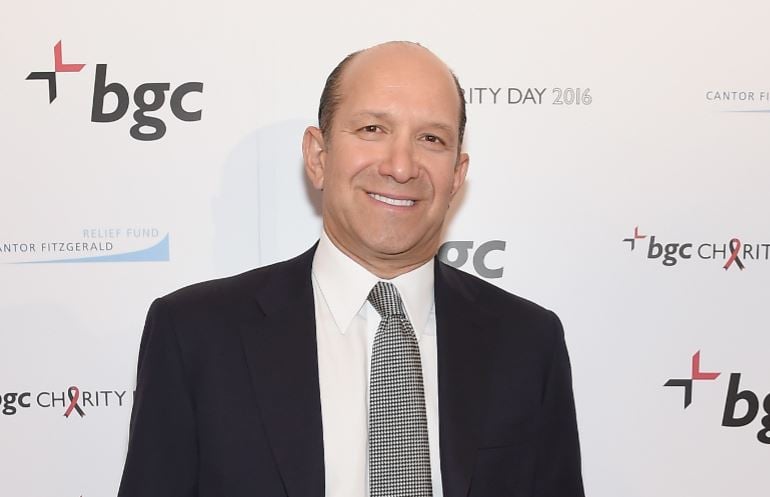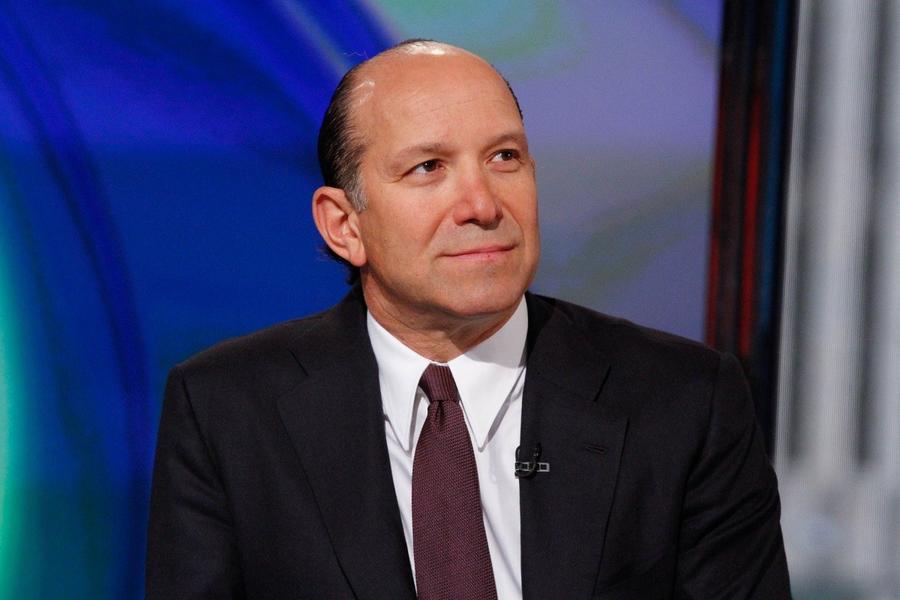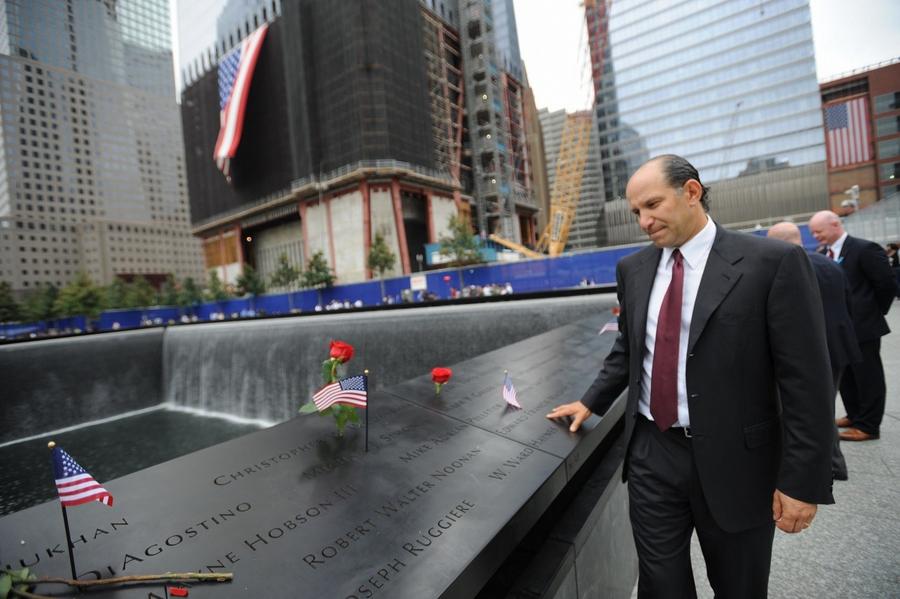What is Howard Lutnick's Net Worth and Salary?
Howard Lutnick is an American businessman who has a net worth of $2 billion. Howard Lutnick earned his fortune thanks to his 60% stake in the financial services company Cantor Fitzgerald. Lutnick joined Cantor in 1983, it was his first job out of college. He was named President and CEO in 1991. Over the decades, he has slowly acquired more of the firm's equity. In the early 2000s, he owned around 25% of the firm's equity. Today, he is the sole stockholder of Cantor Fitzgerald Group Management, which gives him sole voting control over the firm, but his economic equity stake in the company is believed to be 60%.
Howard was CEO of Cantor Fitzgerald on September 11, 2001, when two planes struck the World Trade Center. Cantor Fitzgerald was located on floors 101-105 of One World Trade Center. The plane that struck that tower plowed into the building between floors 93 and 99 – just below his company's offices – trapping everyone above and condemning them to a horrible death. Lutnick's brother Gary and his best friend, Douglas Gardner, were among the 658 Cantor employees who died that day. Lutnick would usually be in the office long before 9 am. But, as fate would have it, September 11, 2001, was his son Kyle's first day of kindergarten, and he wanted to take him to school. That fatherly act saved his life. As the sun set on September 11, 2001, Lutnick and his sister Edie were the sole surviving members of their immediate family. Lutnick's philanthropic efforts since that tragic day have been nothing short of extraordinary. In the nearly 14 years since September 11, 2001, Lutnick's giving has grown impressively. His firm donates the profits made each September 11 to the families of the victims of the World Trade Center attacks. To date, this giving alone totals more than $100 million.
Howard and Linda McMahon are the co-chairs of Donald Trump's 2024 presidential transition team. Howard had been floated as potentially being selected to serve as Trump's Treasury Secretary. He was ultimately selected to be Tump's Commerce Secretary. He was confirmed and sworn-in in February 2025.
2025 Financial Disclosure
According to a financial disclosure released in January 2025, Howard holds executive positions in more than 800 firms and earned $300 million in compensation in just the previous years.

Getty
Early Life & Education
Howard Lutnick was born on July 14, 1961, in Jericho, Long Island, New York. He and his two siblings grew up with their parents, Solomon and Jane. Solomon Lutnick was a history professor at Queens College, and Jane Lutnick was an artist. Howard is the middle child. His sister Edie is the oldest, and his brother Gary was the youngest. When Lutnick was a senior in high school in 1978, his mother lost her battle with lymphoma. The following year, Lutnick was a freshman at Pennsylvania's Haverford College when his father died while undergoing treatment for lung and colon cancer. It was an accidental death unrelated to the cancer. A nurse gave Solomon Lutnick 100 times the dose of chemotherapy drugs that he was prescribed.
Now orphans, Lutnick and his siblings were abandoned by their extended family members. The siblings turned to each other for support. Howard was forced to hire an attorney to settle the debt his father left behind.
The president and dean of Haverford College, an institution that prides itself on its Quaker heritage, called Lutnick a week after his father's death. His condolence call came with an added surprise – the college was giving him a full scholarship so that he could complete his bachelor's degree. Lutnick graduated from Haverford in 1983 with a degree in economics.
Cantor Fitzgerald
Lutnick joined Cantor Fitzgerald right after he graduated from Haverford in 1983. The firm's founder, Bernard Cantor, took him on as his mentor. Lutnick was a ruthless competitor. By 1991, Lutnick, then just 30 years old, was named President and CEO. Under his leadership, the firm expanded beyond its traditional bond trading business into new markets and technologies. He was instrumental in developing eSpeed, an electronic trading platform that revolutionized bond trading. His innovative approach helped transform Cantor Fitzgerald into a global financial services firm.
He added the title of Chairman in 1996. Cantor was (and still is) a major force in the bond market. There isn't a central exchange for bonds like the New York Stock Exchange. So financial companies turn to middlemen like Cantor to trade bonds without revealing their hand. In 2001, more than 70 percent of all United States Treasury securities were traded through Cantor Fitzgerald.

Rob Kim/Getty Images
9/11
On September 11, 2001, at 8:46 am, American Airlines Flight 11 struck the North Tower, smashing into the tower between floors 93 and 99. The day starts on Wall Street around 7:30 am. Therefore, nearly all of Lutnick's brokers were at their desks on the 101st through 105th floors of the North Tower when the plane hit just two floors below them. Cantor brokers in the London and Los Angeles offices heard the horror through the inter-office squawk boxes.
We all know the rest. Three out of every four people who worked for Lutnick's Cantor Fitzgerald in New York City died that morning. When the debris settled, 658 Cantor employees were dead, including his younger brother Gary. Lutnick himself survived only because he was taking his son to his first day of kindergarten.
In the aftermath, he made the controversial decision to stop the victims' paychecks.
In an interview with Larry King on CNN on September 19th, a raw Lutnick said:
"Every person who came to work for me in New York, everyone who was at the office, every single one who was there isn't there anymore. We can't find them. All of them. Everyone."
He also addressed the cutting off of the paychecks, saying:
"I lost everybody in the company… I don't have any money to pay their salaries."
Still, his critics were vocal, and his critics were the widows, widowers, parents, siblings, and children of the Cantor employees who died on September 11, 2001. Days after the September 11th attacks, Lutnick founded the Cantor Fitzgerald Relief Fund and tapped his sister Edie to run it. Its purpose was to aid the families of Cantor employees who perished in the attack. Lutnick started it with a $1 million donation from himself. The fund provided assistance to families of 9/11 victims from 14 different companies other than Cantor. To date, the fund has dispersed roughly $180 million to families of Cantor employees and $280 million altogether.
Over the years, Cantor has rebuilt. Lutnick will never forget 9/11 and his employees who lost their lives. Both Howard and his employees continue to forgo a day's pay on September 11th each year, and the company continues to donate a day's revenue to the Cantor Fitzgerald Relief Fund.
Today, Howard Lutnick's office features a bronze Rodin sculpture of a hand. The sculpture was recovered from the wreckage of the World Trade Center. Just one item from a vast collection of Rodin and other precious art that Bernie Cantor amassed over a lifetime and that was housed in the Cantor Fitzgerald offices. The finish of the sculpture is seared. Fingers are missing. It is a reminder.

David Handschuh-Pool/Getty Images
Philanthropy
In addition to Cantor's annual Charity Day initiative, Lutnick has also made significant personal contributions to his alma mater, Haverford College, including funding for the Douglas B. Gardner '83 Integrated Athletic Center. He serves on several charitable boards and has been recognized with numerous humanitarian awards for his philanthropic work. His commitment to giving back has become a defining aspect of both his personal legacy and Cantor Fitzgerald's corporate culture.
After Hurricane Sandy, Lutnick also led Cantor to donate $10 million to New Yorkers who lived in the neighborhoods affected by Hurricane Sandy. Ever the philanthropist, Lutnick appeared on the Piers Morgan Live TV show and pledged $2 million to families affected by the Moore, Oklahoma tornado. The May 20, 2013, tornado killed 24 people and injured hundreds more. The donation was given out in the form of $1,000 debit cards to area families.
Real Estate
In March 2003, Howard paid $15.15 million for a 40-are estate in the Hamptons town of Bridgehampton. In 2018, he completed construction on a 14,700-square-foot mansion. Today, his Hamptons property is easily worth north of $100 million.
In December 2024, Howard bought Bret Baier's Washington, D.C. mansion. The exact sale price was not known at the time of this writing, however, the mansion had been most recently listed for $29 million after initially being listed for $32 million in November 2023. As long as the sale price is above $24 million, it will be the most expensive mansion ever sold in the Georgetown area.
In August 2017, Howard paid $44 million for the top three floors of the iconic Pierre Hotel in New York City. The three units had at one time been listed for $125 million. The seller was Barbara Zweig, the widow of financier Martin Zweig.
/2011/09/howar.jpg)
/2010/02/Larry-Silverstein.jpg)
/2020/01/michael-bloomberg-1.jpg)
/2017/11/lee-amatias.jpg)
/2023/02/David-Tepper.jpg)
/2012/11/GettyImages-470080838.jpg)
/2022/01/Jane-Birkin.jpg)
/2021/02/barry-sanders.jpg)
/2010/02/Jennifer-Hudson.jpg)
/2019/10/Paulina-Porizkova.jpg)
/2012/07/GettyImages-508683722.jpg)
/2009/10/Peyton-Manning-1.jpg)
/2021/03/ben.jpg)
/2020/01/akon2-1.jpg)
/2020/01/Patrick-Duffy.jpg)
/2012/09/Delta-Goodrem.jpg)
/2012/08/Archie-Manning.jpg)
/2011/09/howar.jpg)
/2010/02/Larry-Silverstein.jpg)
/2018/05/GettyImages-902270836.jpg)
/2023/02/David-Tepper.jpg)
/2017/08/Steven-Mnuchin.jpg)
/2010/08/GettyImages-456848248.jpg)
/2024/11/scott-bessent.jpg)